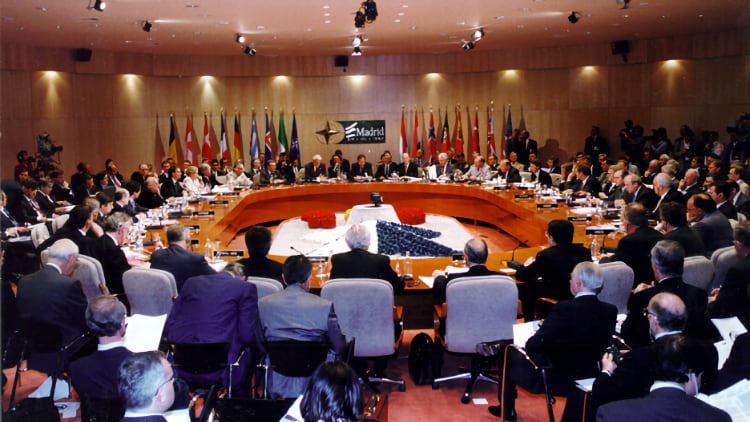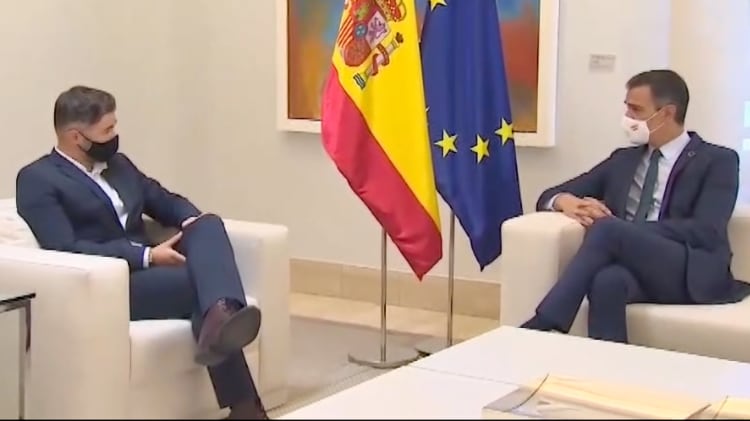Luis Ayllón
The Secretary General of the Atlantic Alliance, Jens Stoltenberg, has invited the highest dignitaries of Japan, South Korea, Australia and New Zealand to participate in the NATO Summit to be held in Madrid on 29 and 30 June, according to allied sources.
The Spanish government, which is hosting the summit, has agreed to the invitation, which was advanced last Tuesday by US Secretary of State Antony Blinken in a hearing before the US Senate Foreign Relations Committee in response to a question from Republican Senator William Hagerty.
The idea had been on the table for several weeks, especially after foreign ministers from non-NATO countries, including Japan, South Korea, Australia and New Zealand, attended a meeting of NATO foreign ministers in Brussels on 7 April to discuss sanctions against Russia and support for Ukraine.
On the occasion of that meeting, Stoltenberg said NATO members agreed to intensify cooperation with partners in the Asia-Pacific on issues such as cyber, new technologies, disinformation, maritime security, climate change and resilience, “because global challenges demand global solutions,” he said.
In his appearance in the Senate, Blinken did not give details on whether the leaders of the four countries will attend the Madrid Summit, nor whether the invitation has already been extended.
However, yesterday, Park Jin, who will be part of the new Korean government as foreign minister after President-elect Yoon Suk-yeol takes office on the 10th, confirmed that the invitation to attend the Madrid meeting had been received. He added that consideration was being given to whether Yoon Suk-yeol would participate in the summit.
Park Jin said that NATO seems to see the possibility of the Ukrainian crisis affecting security conditions in Asia, which is why it feels the need to discuss the relationship between the European crisis and stability in Asia.
Similarly, Japanese Prime Minister Fumio Kishida, who supports closer ties with NATO, abandoning Japan’s post-World War II policy of self-defence, is likely to be present.
Australian Prime Minister Scott Morrison is also likely to attend the Madrid meeting because Australia has always been close to NATO and now seeks greater allied engagement in the Indo-Pacific area, with an eye on China and its equidistant stance on the Ukraine crisis, as called for by its foreign minister, Marise Payne, at the meeting of NATO foreign ministers in Brussels just over a month ago.
Australia, moreover, has since September last year formed the military alliance with the United States and the United Kingdom (AUKUS), which recently announced a programme to build hypersonic missiles, some of which would be stationed on Australian soil, a move viewed with concern by Beijing.
New Zealand’s prime minister, Jacinta Arden, is also expected to attend the Madrid summit because New Zealand shares many of Australia’s concerns about China and has been significantly involved in helping Ukraine in the wake of Russian aggression.
A total of 30 countries are currently members of the Atlantic Alliance and some, such as Sweden and Finland, seem determined to join the organisation in the wake of Russia’s invasion of Ukraine. Finland may even formally present its candidacy in Madrid. In addition, NATO has partnership agreements with some 40 other countries, including the four Asia-Pacific countries mentioned above, to collaborate on security and defence-related activities.
The Madrid Summit, which will coincide with the 40th anniversary of Spain’s accession to the Alliance, will bring together the highest dignitaries of the member countries, initially with the aim of approving NATO’s new strategy, but which will be heavily influenced by the situation following Russia’s invasion of Ukraine.







